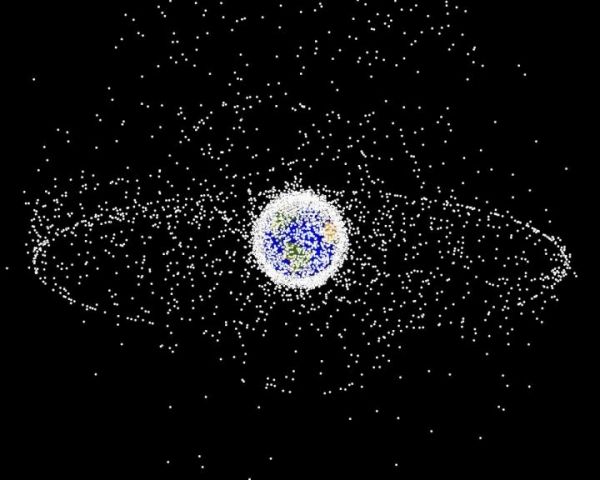Space is getting crowded. Aging satellites and space debris crowd low-Earth orbit, and launching new satellites adds to the collision risk. The most effective way to solve the space junk problem, according to a new study, is not to capture debris or deorbit old satellites: it’s an international agreement to charge operators “orbital-use fees” for every satellite put into orbit.
Orbital use fees would also increase the long-run value of the space industry, said economist Matthew Burgess, a CIRES Fellow and co-author of the new paper. By reducing future satellite and debris collision risk, an annual fee rising to about $235,000 per satellite would quadruple the value of the satellite industry by 2040, he and his colleagues concluded in a paper published today in the Proceedings of the National Academy of Sciences.
“Space is a common resource, but companies aren’t accounting for the cost their satellites impose on other operators when they decide whether or not to launch,” said Burgess, who is also an assistant professor in Environmental Studies and an affiliated faculty member in Economics at CU Boulder. “We need a policy that lets satellite operators directly factor in the costs their launches impose on other operators.”
Read more at University of Colorado at Boulder
Image: A computer-generated image representing space debris as could be seen from high Earth orbit. The two main debris fields are the ring of objects in geosynchronous Earth orbit and the cloud of objects in low Earth orbit. (Credit: NASA)


